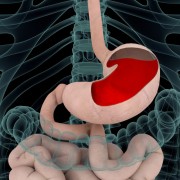How is acid reflux treated?
Dr Tan Chi Chiu discusses treatment options for patients with acid reflux symptoms

When faced with a patient with reflux symptoms how we approach treatment depends on how severe the symptoms are and how old the patient is, says Dr Tan. As with all diseases in the digestive system the older a patient is the more we would have to exclude serious disease, he adds.
For patients who are young and who have typical reflux symptoms we might try using anti-reflux medication, typically an acid inhibitor called proton pump inhibitor. When given over a week or two, these drugs act like a therapeutic test to make sure patients suffer from acid reflux by checking if they report any improvement. If patients do not improve or the symptoms come back again then we need to do more tests.
The tests we might do to evaluate reflux symptoms include blood tests, imaging, such as an ultrasound or even a CT scan depending on the symptoms, or an MRI, and it could certainly include a gastroscopy, which is an endoscopic examination of the upper digestive system. This is the most direct way through which we can look at the lining of the oesophagus to see whether or not there is evidence of inflammation, erosions, ulcerations or perhaps even scarring. We will also be looking for symptoms of Barrett’s Oesophagus, which is a kind of cell that develops after prolonged stimulation by acid and it is a risk factor for adenocarcinoma - a type of cancer of the lower oesophagus.
Whether we proceed to do a gastroscopy in the first instance depends on the patient profile. If it is a young patient with very typical symptoms of reflux we might content ourselves with a therapeutic trial of medicines like a proton pump inhibitor, which prevents or slows down acid production in the stomach. If the patient gets better then this is most likely due to acid reflux. However, some patients don’t get better with this treatment, while others have symptoms that quickly come back again. In this cases further tests, such as a gastroscopy, may be required.
In slightly older patients, perhaps 45 years and above, where the risk of cancer is higher an endoscopy may be necessary alongside blood and imaging tests so as to give some reassurance to the patient that nothing is seriously wrong. Whether the patient has non-erosive reflux or erosive oesophagitis with or without complications, the medical treatment of these problems is fairly similar. The key drug is always a proton pump inhibitor. Reducing acid secretion from the stomach it can certainly cure oesophagitis and prevent complications.
Another medicine, which is often given to reflux patients, is a prokinetic drug. This is a medicine that causes the oesophagus and stomach to pump a little bit harder thereby pushing acid downwards and reducing the likelihood that acid will come up above the valve and into the oesophagus. With these two treatments the majority of patients will quickly feel well again.
Unfortunately, these medicines don't cure reflux problems. The fundamental problem causing reflux is often due to the weakness of the valve between the oesophagus and the stomach and this defect is not altered by medicines. Medications reduce acid production and push acidic stomach content downwards so that when reflux does take place is minimised and very low in acid content.
Are there ways of tightening the valve? There are. The most established method is surgery. There is a procedure called Nissen Fundoplication, which can be done either by an open surgical technique or a laparoscopic technique whereby a cuff of the stomach at the upper end is wound around the lower oesophagus and stitched so that it increases the pressure on the oesophageal sphincter. But this is a major surgery under general anesthesia and for patients who have reflux that is not very severe and whose symptoms can be controlled, or whose oesophagitis can be cured by medical treatment, we would not generally recommend patients undergo surgical procedures because the risk-benefit ratio is not favourable.
Of course, if patients keep suffering from reflux they may need maintenance reflux treatments over a period of time or even indefinitely in order to feel comfortable. If patients are fine with this option then that is not a problem. But, some patients simply refuse to take long-term medications and opt for surgery.
Dr Tan Chi Chiu is a clinical gastroenterologist, hepatologist and specialist in internal medicine at Gastroenterology and Medicine International. He can be reached at +65 6471 2212.
Related Articles
“Tidal wave” of cancer predicted
WHO predicts doubling of annual cancer cases by year 2034
Read moreYou Ask, They Answer: Opioid Addiction
Patients with personality disorders, depression, anxiety or a history of alcohol or drug abuse are at high risk of opioid addiction
Read moreWorried about medical bills?
Mount Elizabeth Hospitals says patients can obtain a clear breakdown of their medical bills beforehand along with the coverage of several insurance options
Read moreLatest Articles
Medical Care
Clearing the Fog: Dispelling Common Diabetes Myths in Singapore
Uncover the truths and myths about diabetes with insights from Harmony Thyroid, Endocrinology and Diabetes Centre. Learn about prevention, diagnosis, and management strategies for diabetes in Singapore. Get expert guidance from Senior Consultant Endocrinologist Dr. Vikram Sonawane to navigate your diabetes journey effectively.
Read moreMedical Care
Achieving Swift Recovery: Enhanced Recovery (ERAS) Direct Anterior Approach Total Hip Replacement
Consider total hip replacement with Alps Orthopaedic Centre's ERAS Direct Anterior Approach for faster recovery and reduced hospital stays. Learn about Dr. Jerry Chen's expertise in Singapore.
Read moreMedical Care
Enhanced Recovery (ERAS) Total Knee Replacement
Discover how Alps Orthopaedic Centre's Enhanced Recovery After Surgery (ERAS) approach transforms total knee replacement into a day surgery, offering faster recovery, less pain, and reduced hospital bills. Learn about Dr. Jerry Chen's expertise and schedule your appointment in Singapore.
Read more